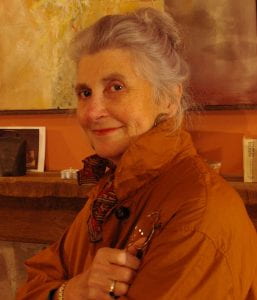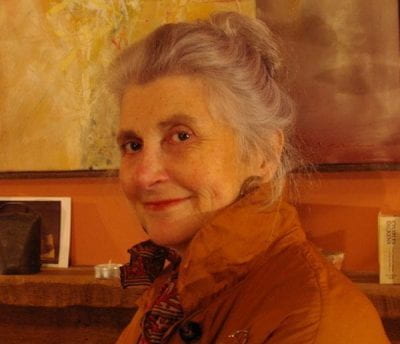In April 2023, Paula Read (MA in Creative Writing (Non-fiction), 2018) published her second work of non-fiction, “If Only It Hadn’t Rained”. The book recounts the travails of Roland Chopard, a Frenchman deported by the occupying Germans to work as a forced labourer in 1944. Paula tells a twin tale of how the memoirs were discovered and her own journey through City as part of a fulfilling career earning from her own pen.

How did you discover this story in the first place?
It was Roland’s daughter Annie and her husband who stumbled across the original papers along with some artefacts left behind by an American liberating soldier during the Second World War. Roland had written it up a couple of years after his release from Buchenwald, and it proved to be a very interesting memoir. It was during lockdown that I was contacted firstly to translate them into English, after which the idea of turning them into an actual book started to germinate. Annie gave me lots of background material to provide some context, including a DVD featuring the survivors of the initial raid that led to Roland’s deportation. I used the words of some of the survivors, weaving them into the narrative to try to bring to life the raid and the moment of Roland’s capture.
How were the subjects of the memoir treated? How did you react to it?
Not much has been written in English about the experiences of forced labourers, and with the approach of the 80th anniversary of the D-Day landings, this book might appeal to many with an interest in the Second World War. You assume that there was huge difficulty for those previously deported to get back into society. I know that Roland continued to feel a great deal of anguish that he never revealed to his family but that has come out in the papers. He didn’t talk about it, preferring to make jokes as a lot of people returning from such awful experiences sometimes tend to do. From my perspective as the writer, it was difficult. I’m not a historian, but I read a lot, so I formed a certain view. And yes, it does seem that it was very difficult for French people who endured a similar fate.
What approach did you take to telling Roland’s tale?
This is one man’s story. It’s not a history, but it’s very important to those involved so you must approach things carefully. At the same time, I was given full licence and Roland’s family placed their trust in me. When I was translating, I tried to use the vocabulary Annie thought her father would have used at the time as opposed to perhaps more modern locutions. We tried to keep it true to him. This is one of the most challenging things about non-fiction – it’s very tricky writing about people’s real lives, trying to stay truthful to them and not causing unnecessary offence.
You opted for an MA in Creative Writing at City. What have the benefits been?
I had been writing for a living all my life up until starting the MA in 2016. As part of the course, I had to write a book, in my case about a family member and titled “The Hazelnut Grove”. It was eventually published in 2020 and a section appeared in City’s writing anthology. The MA showed me so many ways of getting into a story – the tricks, how to make the narrative lively. You’ve got all this material coming out of your ears but need to learn how to fashion it into a story that readers can actually get their teeth into. Some non-fiction can be really turgid, so the tricks of the trade I learned from the MA, the teaching staff and my fellow students have proven essential.

What advice would you give to prospective students considering a similar discipline?
Make the absolute most of everything you’re offered. Read a lot, read your tutors, and read your fellow students. Be absolutely assiduous about that. On the MA, we exchanged extracts from our writing and gave honest, constructive feedback without pulling punches. It was very, very helpful because you’ve got a genuine reader response from someone studying the same discipline as you. Also, listen to everything, go to all the guest lectures, take notes, and talk to your network. In short, help one another believe in their writing project.
What motivates writers?
Writing can at times be therapeutic but, in all honesty and based on my dealings with other writers and students of writing, sometimes we don’t actually know what we want from it. Whatever the motivation, you have to keep driving yourself to fit writing in around your life and work. Because I have done so much freelancing over the years, I have always been good at making my own timetables. Some writers procrastinate a lot – I certainly do. Deadlines are essential. However, all serious writers eventually find their own method.
What future writing projects do you have in the pipeline?
I want to go on writing and producing books. My background in journalism means I’m more adept at writing and editing short pieces. I find long books a slog. It’s really hard work, but extremely satisfying. Of course, when writing about real people and events it is important to represent them truthfully yet still focus on creating an interesting story. This was the challenge for my first publication as part of the MA, which is about my cousin and his wife who went to live in Italy and how they survived. The same is true of writing Roland’s story, but in this case, there was the added responsibility of historical accuracy. I’ll never forget the part my studies at City have played in helping me achieve this, in giving me the necessary confidence to tell a true tale but in an engaging fashion.
https://www.troubador.co.uk/bookshop/biography/if-only-it-hadnt-rained
